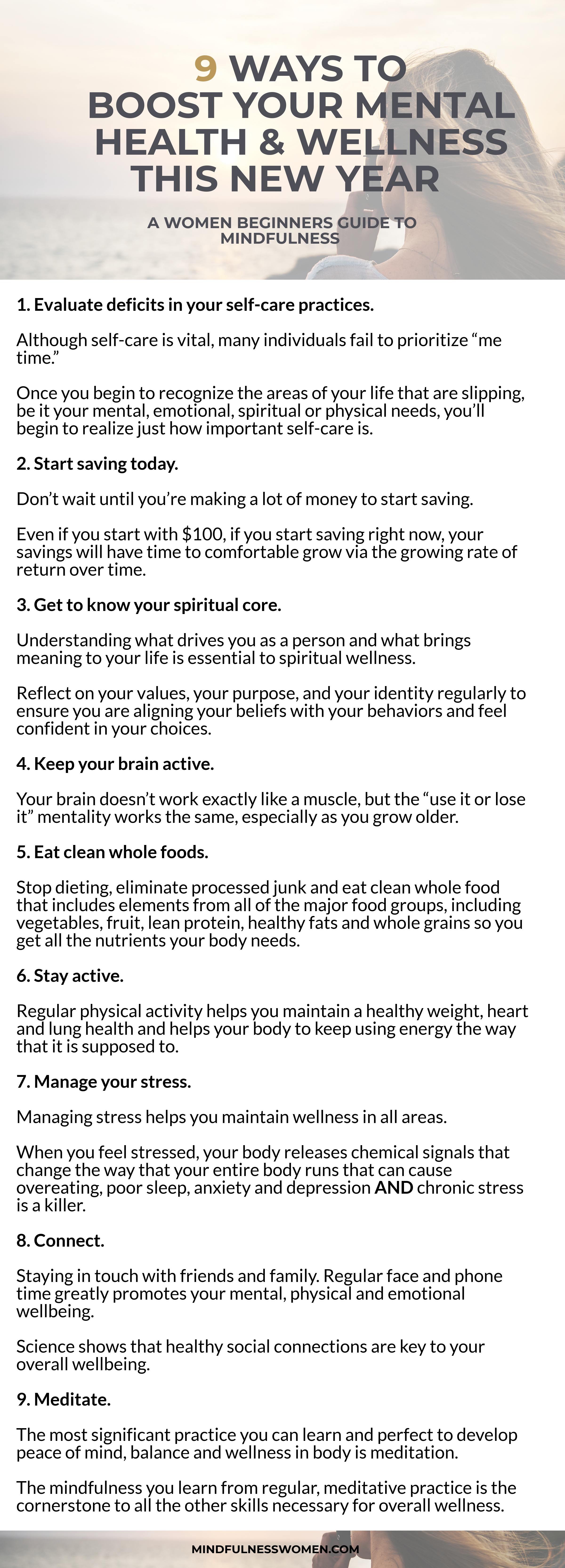1. Evaluate deficits in your self-care practices
Although self-care is vital, many individuals fail to prioritize “me time.” Once you begin to recognize the areas of your life that are slipping, be it your mental, emotional, spiritual, or physical needs, you’ll begin to realize just how important self-care is.
2. Start saving today.
Don’t wait until you’re making a lot of money to start saving. Even if you start with $100, if you start saving right now, your savings will have time to comfortably grow via the growing rate of return over time.
3. Get to know your spiritual core.
Understanding what drives you as a person and what brings meaning to your life is essential to spiritual wellness.
Reflect on your values, your purpose, and your identity regularly to ensure you are aligning your beliefs with your behaviors and feel confident in your choices.
4. Keep your brain active.
Your brain doesn’t work exactly like a muscle, but the “use it or lose it” mentality works the same, especially as you grow older.
5. Eat clean whole foods.
Stop dieting, eliminate processed junk and eat clean whole food that includes elements from all of the major food groups, including vegetables, fruit, lean protein, healthy fats, and whole grains so you get all the nutrients your body needs.
6. Stay active.
Regular physical activity helps you maintain a healthy weight, heart and lung health and helps your body to keep using energy the way that it is supposed to.
7. Manage your stress.
Managing stress helps you maintain wellness in all areas because when you feel stressed, your body releases chemical signals that change the way that your entire body runs that can cause overeating, poor sleep, anxiety, and depression AND chronic stress is a killer.
8. Connect. Staying in touch with friends and family.
Regular face and phone time greatly promote your mental, physical, and emotional wellbeing. Science shows that healthy social connections are key to your overall wellbeing.
9. Meditate.
The most significant practice you can learn and perfect to develop peace of mind, balance, and wellness in the body is meditation. The mindfulness you learn from regular, meditative practice is the cornerstone of all the other skills necessary for overall wellness.































